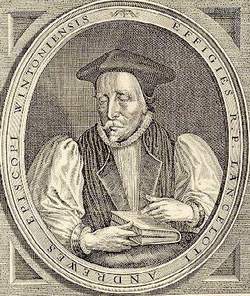
Here is a Litany for the primates. It is a good thing to pray while they are meeting this week.
Let us pray.
I
Let us ask the holy, blessed and glorious Trinity
To send mercy and grace upon our church and especially
Upon our Primates gathered in conference at this time.
God the Father,
have mercy upon us.
God the Son,
have mercy upon us.
God the Holy Spirit,
have mercy upon us.
Holy, blessed and glorious Trinity,
have mercy upon us.
II
We repent our failure to honour you O Lord
and seek renewal of our lives and church;
good Lord, deliver us.
From all evil and mischief;
from pride, vanity and hypocrisy;
from envy, hatred and malice;
and from all evil intent,
good Lord, deliver us.
From sloth, worldliness and love of money;
from hardness of heart;
from fear of difference;
from the cruelty of intolerance
and from failure to discern your presence
good Lord, deliver us.
From narrowness of mind;
from arrogance and ambition;
from all that defaces your image;
good Lord, deliver us.
Hear our prayers, O Lord our God.
Hear us, good Lord.
III
Remembering your boundless love for all humanity;
especially your saving acts in Jesus Christ,
we seek your deliverance:
By the mystery of your holy incarnation;
by your birth, childhood and obedience;
by your baptism, fasting and temptation,
good Lord, deliver us.
By your ministry in word and work;
by your mighty acts of power;
and by your preaching of the kingdom,
good Lord, deliver us.
By your agony and trial;
by your cross and passion;
and by your precious death and burial,
good Lord, deliver us.
By your mighty resurrection;
by your glorious ascension;
and by your sending of the Holy Spirit,
good Lord, deliver us.
IV
We give thanks to you, Most Holy, for the Church:
particularly for this part of the household of faith,
the worldwide Anglican Communion.
We praise you O God
We remember gratefully some of those who have given leadership
from the See of Canterbury
We praise you O God
For Augustine, first Archbishop of Canterbury,
We praise you O God
For Anselm, the subtle theologian,
We praise you O God
For Thomas a Becket, martyr,
We praise you O God
For Thomas Cranmer, Liturgist and martyr,
We praise you O God
For William Laud, Martyr,
We praise you O God
For Frederick Temple, reformer,
We praise you O God
For William Temple, Theologian,
We praise you O God
For Michael Ramsey, Scholar and Visionary,
We praise you O God
V
For the gifts of your Spirit;
for the diversity of our callings;
In hope and wonder, we praise you.
For the Saints in every age
who reflected you in their lives and ever since,
In hope and wonder, we praise you.
For all who have stood firm in faith and love,
In hope and wonder, we praise you.
For writers, artists and musicians
whose works have reflected your truth and glory;
In hope and wonder, we praise you.
For scientists and thinkers, mystics and visionaries;
for all who have dwelt on your mystery;
In hope and wonder, we praise you.
For the succession of quiet and gracious souls,
whose presence has sweetened and sanctified the world,
In hope and wonder, we praise you.
VI
O God, Creator of all that is and is to be,
In this time of our need,
Hear us, good Lord.
O God the Son, restorer of all creation
In this time of our need,
Hear us, good Lord.
O God the Spirit, ground of all holiness,
In this time of our need,
Hear us, good Lord.
O Holy, Blessed and Glorious Trinity,
In this time of our need,
Hear us, good Lord.
Uphold and govern the Primates Conference;
direct it into love and truth;
and grant it that unity which is your will.
In this time of our need,
Hear us, good Lord.
Give our Primates such a sense of your love,
and such a vision of your purpose for all creation
that they may receive new understanding of your mercy
and, resisting schism, boldly proclaim the gospel.
In this time of our need,
Hear us, good Lord.
Enlighten Rowan, 104th Archbishop of Canterbury,
with your special grace;
grant to him wisdom, knowledge and understanding;
empower him with such gifts of reconciliation and love
that, embracing difference and diversity,
our church may joyfully proclaim your word.
In this time of our need,
Hear us, good Lord.
Give all our Primates discerning and receptive minds;
where there is anger, grant reconciliation;
where there is prejudice, grant openness;
where there is fearfulness, give serenity;
where there is ambition, give humility.
In this time of our need,
Hear us, good Lord.
Endow our Primates with clarity of thought,
generosity of mind, and charity of speech;
grant them gifts of patience and forbearance;
may they delight in the truth
and be surprised by the Spirit.
In this time of our need,
Hear us, good Lord.
Bring into the way of truth all who have erred
and are deceived.
Hear us, good Lord.
Strengthen those who stand;
comfort and help the faint-hearted;
raise up the fallen;
and finally beat down all the powers of darkness.
Holy God,
Holy and strong,
Holy and immortal,
Have mercy upon us.
Heavenly Father,
you have called us
in the Body of your Son Jesus Christ
to continue his work of reconciliation
and reveal you to humankind.
Forgive us the sins that tear us apart;
give us the courage to overcome our fears
and to seek that unity
which is your gift and your will;
through Jesus Christ our Lord. Amen.
Most gracious God,
your son, Our Lord,
prayed for his disciples,
that they may be one.
Bless and guide
your holy church on earth;
strengthen its fellowship;
increase its stewardship
and sustain it in mission.
May the Holy Spirit govern
and kindle the hearts of
the people of the
Anglican Communion,
that in all things said and done, we may serve only Christ, crucified,
risen and glorified;
Christ alive and present in our day in his body the church.
May our unity come from living out of lives, strengthened by word and sacrament,
and our love for the Christ that we see in each other.
May we be faithful to the Risen Christ in whose name we pray. Amen.
(From Lent and Beyond: An Anglican Prayer Blog. Thank you.)





























